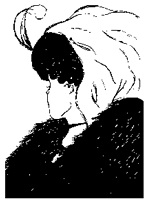FastPace
DP Veteran
- Joined
- May 25, 2017
- Messages
- 1,842
- Reaction score
- 243
- Gender
- Male
- Political Leaning
- Other
I'm slightly hesitant to post this up. Because sometimes I think it's better to leave a Christian person comfortable were they are at rather than to be part of a cause that shakes their faith to an extent they give up Christianity altogether. I think that can be a possible result when it hit with shock. People can have differing psychological responses. One person might convert, one person might remain comfortably where they are, another might give up everything and become jaded and atheist.
It has been said--logically--if you don't trust the authority of the Catholic or Orthodox Bishops then don't trust the Bible.
I accept the Bible because I accept Apostolic Succession. It's logically coherent in my mind.
Usually I post quotes from the links I post. But in this case I will just post the links because if there is a Protestant, or fallen away Protestant that reads the Bible but does not attending any Protestant Church, and are comfortable where they are at then don't click on the links. (if info interpreted possibly by you as disturbing might cause you to abandon all faith in God and Christ).
Link 1. Catholic source explaining the historical differences in the Biblical canons of the Orthodox from Catholic: Why does the Orthodox Bible have more books than the Catholic Bible?
Link 2. Orthodox source explaining why Martin Luther took some books out the Bible, and also gives where in the Catholic and Orthodox Biblical canons you can find Biblical references for prayers for the dead, intercession of saints, and so on: The Orthodox Bible - Orthodox Christian Resource Center
As an additional thing of interest possibly. Apparently, the Ethiopian Orthodox Church has the largest Biblical canon of any Christian Church.
Link 3. Ethiopian Orthodox: https://en.wikipedia.org/wiki/Orthodox_Tewahedo_biblical_canon
It has been said--logically--if you don't trust the authority of the Catholic or Orthodox Bishops then don't trust the Bible.
I accept the Bible because I accept Apostolic Succession. It's logically coherent in my mind.
Usually I post quotes from the links I post. But in this case I will just post the links because if there is a Protestant, or fallen away Protestant that reads the Bible but does not attending any Protestant Church, and are comfortable where they are at then don't click on the links. (if info interpreted possibly by you as disturbing might cause you to abandon all faith in God and Christ).
Link 1. Catholic source explaining the historical differences in the Biblical canons of the Orthodox from Catholic: Why does the Orthodox Bible have more books than the Catholic Bible?
Link 2. Orthodox source explaining why Martin Luther took some books out the Bible, and also gives where in the Catholic and Orthodox Biblical canons you can find Biblical references for prayers for the dead, intercession of saints, and so on: The Orthodox Bible - Orthodox Christian Resource Center
As an additional thing of interest possibly. Apparently, the Ethiopian Orthodox Church has the largest Biblical canon of any Christian Church.
Link 3. Ethiopian Orthodox: https://en.wikipedia.org/wiki/Orthodox_Tewahedo_biblical_canon

